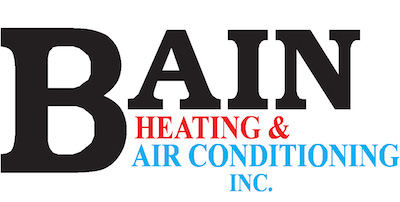
Ever done a double take when you took a look at your last energy bill? While high energy bills can be the end result of intense weather conditions, repeatedly high bills can quickly signify an inefficient HVAC system or your home is wasting energy because of other means, including drafty windows or poor insulation.
One of the simplest ways to figure out whether your home is wasting energy is by hiring a home service specialist to carry out a home energy audit, also known as a home energy assessment. Keep reading to learn more about home energy audits, including what they are and their key elements.
What Is a Home Energy Audit?
An energy audit is a comprehensive inspection of how much energy your home consumes and whether – and where – your home may be losing or wasting energy. An inspector will review older energy bills during an energy audit to determine where energy is being used and how much.
The general goal of an energy audit is to help homeowners save money on their energy bills by suggesting energy-efficient renovations, which might include swapping out your existing HVAC system, installing new insulation, plugging up leaks, or replacing loose windows.
During the energy assessment, the auditor also completes an inspection of the outside and inside of your home. The auditor completes a blower door test on doorways, windows and fireplaces to determine if there are air leaks in your home. They’ll also check your home’s HVAC system, including the ductwork, the water heater, and the insulation in your attic. Some assessments might also include reviewing your current lighting system.
Benefits of a Home Energy Audit
It can be tough for the ordinary homeowner to know for sure how efficient their home is versus other similar homes in their neighborhood. However, lots of energy companies often offer information about where your home stands in comparison to similar homes and whether it’s more efficient, about average, or inefficient versus your neighbors’ homes. This is a useful starting point to figure out if you need an energy audit performed.
Some of the benefits of a home energy audit include:
Recognizing How Efficient Your Home Is
It’s worthwhile to learn more about how efficient your home is and where you’re using up the most energy. For example, if your ducts are leaking, it will lead to a significant increase in your energy bills and excessive wear and tear on your HVAC system as it has to run longer to fully heat or cool your home.
Making Energy-Efficient Improvements
An energy audit can expose where you need to make energy-efficient improvements to save on energy and decrease utility bills. This might include replacing old weatherstripping or buying a new energy-efficient furnace.
Enhancing Health and Safety
Permitting air to slip into your home through doors and windows, or due to a lack of insulation can cause extra moisture to form, which may negatively affect your home’s humidity levels or encourage mold. This can lead to health issues, especially for people suffering from asthma or allergies.
Adding to Your Home’s Retail Value
Energy-efficient homes are desired by homebuyers. You can sell your home more quickly or for more money by showing prospective buyers that it’s energy efficient.
How to Complete an Energy Audit of Your Home
Although handling an energy audit on your own might not be as detailed as choosing a professional, it’ll give you a general understanding of how energy efficient your home is. If you don’t find any flaws during the DIY test, then you potentially don’t need to hire a professional. Try this step-by-step checklist:
- Review your HVAC system. Broken ducts can lose as much as 20% of conditioned air, leading to steeper energy bills and greater wear and tear on HVAC equipment. If you find leaks, use duct tape to seal them. If your HVAC equipment is old and inefficient, upgrading to a new system can save you a substantial amount on your energy bills. In some cases, it can be better to call a reputable HVAC company to inspect your system.
- Check for air leaks. Air leaks on average can raise the energy bills by 10 to 20%. Inside, look for air leaks in areas where there could be a draft, such as along the edge of flooring and close to baseboards and electrical outlets. Outside, you can inspect for air leaks around the home’s foundation, siding and mortar. Plug, caulk or seal any air leaks to save money.
- Examine insulation. If your home is older, it could mean your insulation is too. If you can see the joists, you likely need more insulation.
- Check ventilation. Ensure that all of your kitchen and bathroom exhaust fans are working properly, and inspect for evidence of rot or moisture.
Contact Bain Heating & Air Conditioning for a Professional Energy Audit
If you would like professional help finding out how energy efficient your heating and cooling equipment is, contact the HVAC pros at Bain Heating & Air Conditioning today. We’ve proudly served the residents of Heflin with quality home services for years. Contact us today to request an appointment.


